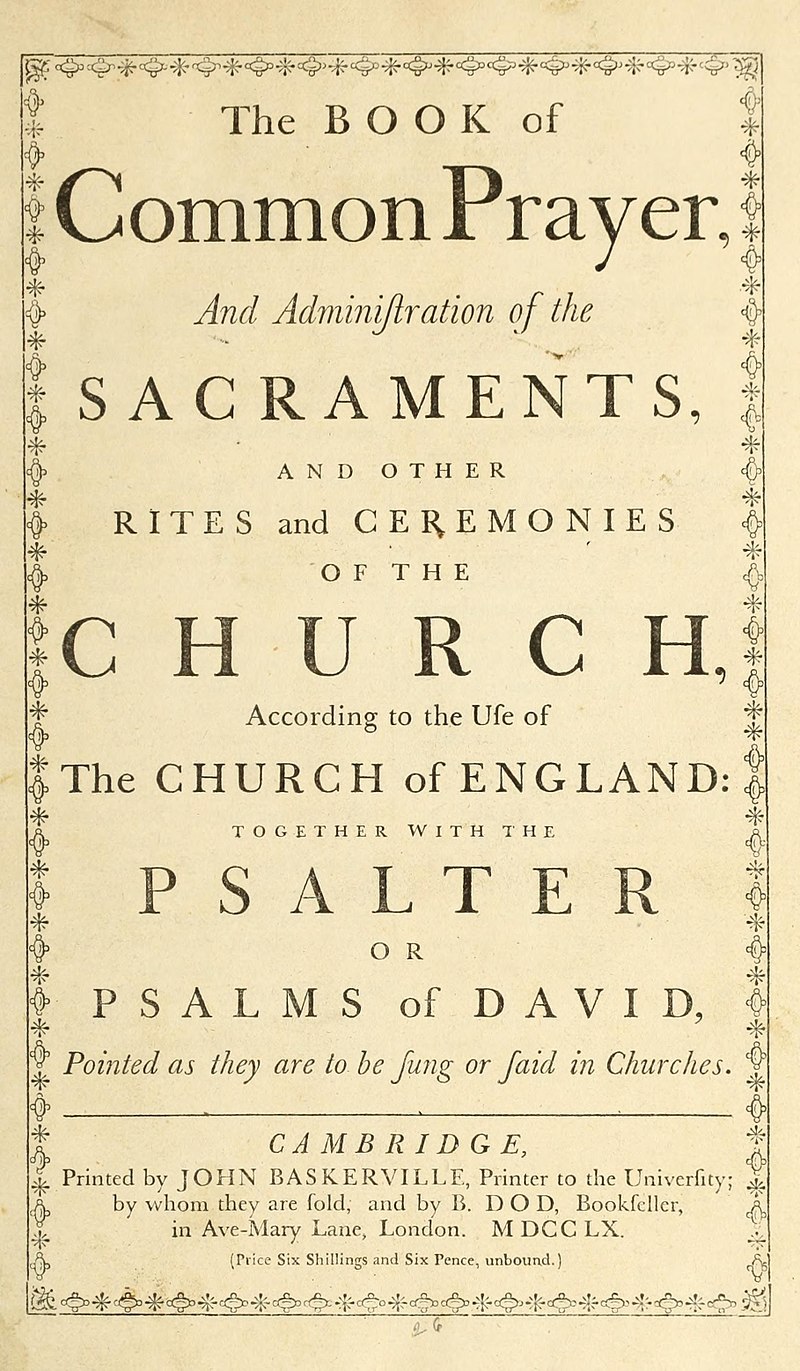February 2025
WHY I LOVE THE BOOK OF COMMON PRAYER
Written by: D.P. Curtin
It is perverse as a Byzantine Catholic, professing a deep appreciation—perhaps even admiration—for the Anglican text commonly referred to as the Book of Common Prayer (BCP). Particularly because the BCP has its roots in the heart of the Elizabethian Reformation in England, an era that marks one of the most painful ruptures in the history of the Western Church. In its earliest forms it shares the language and structured prose of the King James Bible, which would debate a few decades after the BCP. To most Catholics, and indeed most people outside of the confines of orthodox Anglican worship, this work is unknown, and commonly ignored as it holds no canonical status in the way that the biblical texts or other patristics works do. However, its weight as a work of religious literature is perhaps unparalleled. Elements drawn from its liturgy remain familiar to use in the English speaking world, which have become ingrained into our cultural consciousness through their use in popular media. Wedding benedictions such as "dearly beloved, we are gathered here in the sight of God to join...", or the elements of Christian funeral rites like "Ashes to ashes, dust to dust" remain in our common phraseology, even if their origin point in the BCP have been obscured by time. The Book of Common Prayer is a treasure trove of devotion, language, and theology that has enriched the Western Church with its composition.
The first and most immediate reason I was drawn to the Book of Common Prayer is its language. Compiled originally by Thomas Cranmer, an English clergyman, in the mid-16th century, the BCP possesses an elevated yet accessible English that resonates deeply with its prose. The cadence, the poetic rhythm, the balance—it all stirs something distinctively sacred. Consider the opening of Morning Prayer: “O Lord, open thou our lips. And our mouth shall show forth thy praise.” There’s a solemnity here in the text that feels timeless, and which has been held in esteem for generations within the English speaking world. In our modern world, where language is increasingly utilitarian and dry, the BCP reminds us that prayer is not only functional- it is beautiful. Within Western Christendom, we are heirs to a rich liturgical tradition that values the beauty of form, whether in Gregorian chant or in the poetic precision of the Sixto-Clementine Vulgate. The Book of Common Prayer mirrors this appreciation for the sacred through poetic language, and it invites the heart into reverence before God.
Many Catholics are surprised to learn how much the BCP borrows from ancient Christian sources. It’s saturated with Scripture, patristic influence, and echoes of the early Church’s liturgy. While its historical origins lie in Protestant reformation, much of it reflects a shared Christian heritage of the English people. The prayers for morning and evening are deeply structured around the Psalms and Canticles—just like the Liturgy of the Hours. In past epochs when division often overshadowed dialogue, the Book of Common Prayer has served as a bridge—a place where the historic factions of Catholic and Protestant sensibilities can meet in humility and common praise.
Loving the Book of Common Prayer as a Byzantine Catholic is also, in its own way, a quiet act of ecumenism. It is a recognition that the Holy Spirit works across boundaries, and that God’s truth and beauty are not limited by institutional walls. This doesn’t mean compromising on Catholic doctrine or ignoring the real differences that remain between traditions. Rather, it means seeing with generosity—recognizing that there is much to be learned from our Anglican brothers and sisters. In the Second Vatican Council’s Unitatis Redintegratio, the Church affirms that “many elements of sanctification and of truth are found outside” her visible structure.
Finally, my love for the Book of Common Prayer may be called personal. It has sustained me in the dry seasons of my own faith. When prayer felt difficult, when the words to say to God felt obscured. The text of the Book of Common Prayer has given a voice to me out of the silence. When I was uncertain of what to say to God, its ancient wisdom carried me.

